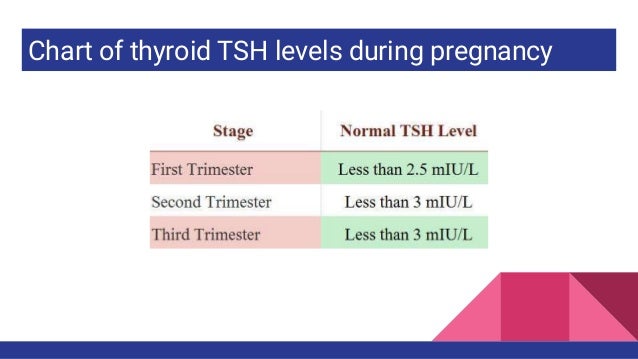

The normal TSH reference range: What has changed in the last decade? DOI: 10.1210/jc.2013-2760 You can learn more about how we ensure our content is accurate and current by reading our editorial policy. Healthline has strict sourcing guidelines and relies on peer-reviewed studies, academic research institutions, and medical associations. Here are the estimated normal, low, and high ranges of TSH levels for adults, based on a 2013 study: Let’s learn more about the range of TSH levels for different groups of people and what to do if your level is too high or too low.

Your pituitary gland responds accordingly by decreasing TSH production to get thyroid function under control. Low TSH levels usually mean that you’re producing too much thyroid hormone.Your pituitary gland reacts to a lack of thyroid hormones by producing extra TSH to make up the difference. Abnormally high TSH levels usually mean that your thyroid is underperforming.Think of your pituitary gland as a thyroid thermometer: TSH levels change inversely with how much thyroid hormone is in your body. And stress, your diet, medications, and having your period can all make TSH fluctuate. For example, a 29-year-old woman may have normal TSH around 4.2 mU/L, while an 88-year-old man may reach 8.9 mU/L at their upper limits. TSH can vary wildly based on your age, sex, and stage of life. A recent study suggests that the normal range should be more like 0.45 to 4.12 mU/L. The typical range of reference for TSH levels is anywhere between 0.45 and 4.5 milliunits per liter (mU/L). It also contributes to your overall energy levels, nerve functions, and much more. TSH helps your thyroid gland make other hormones essential to your metabolism, such as thyroxine. Thyroid-stimulating hormone (TSH) is produced by your pituitary gland, which helps regulate hormone production and metabolism throughout your body. Individual levels of TSH can vary widely, and some people use medication to balance them.

Your pituitary gland produces thyroid stimulating hormone (TSH), which helps regulate hormome production and metabolism.


 0 kommentar(er)
0 kommentar(er)
